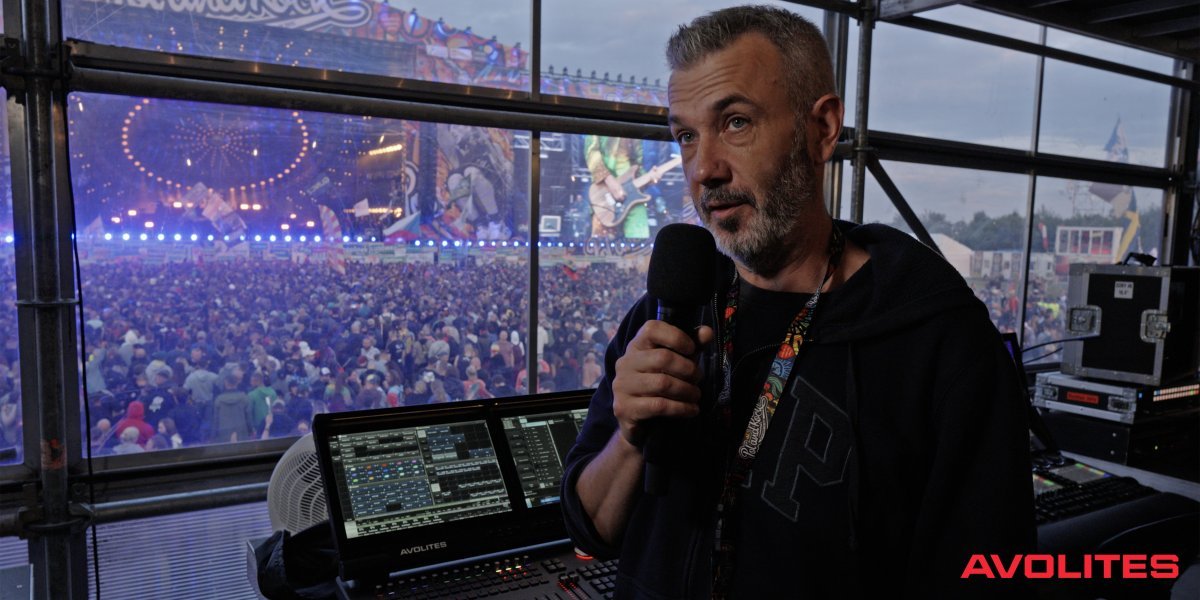
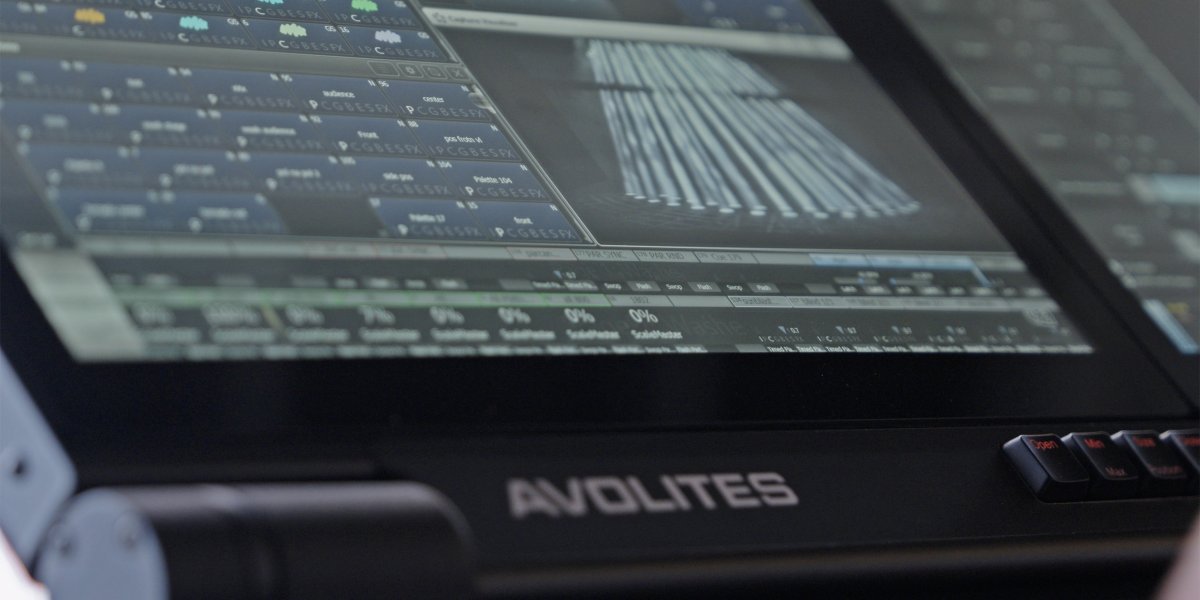
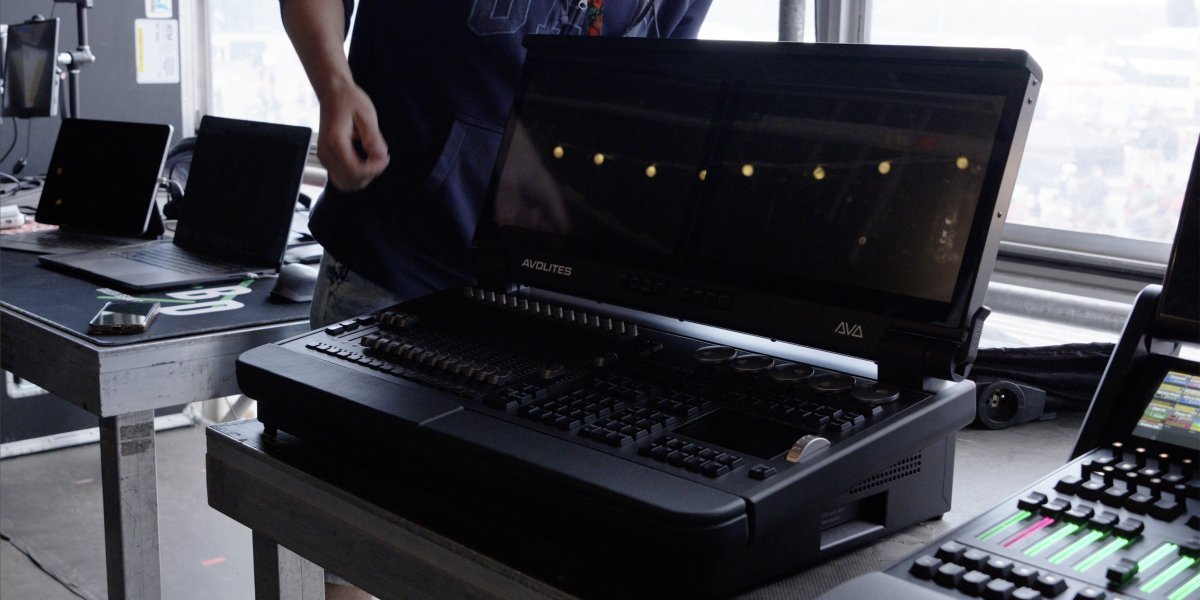
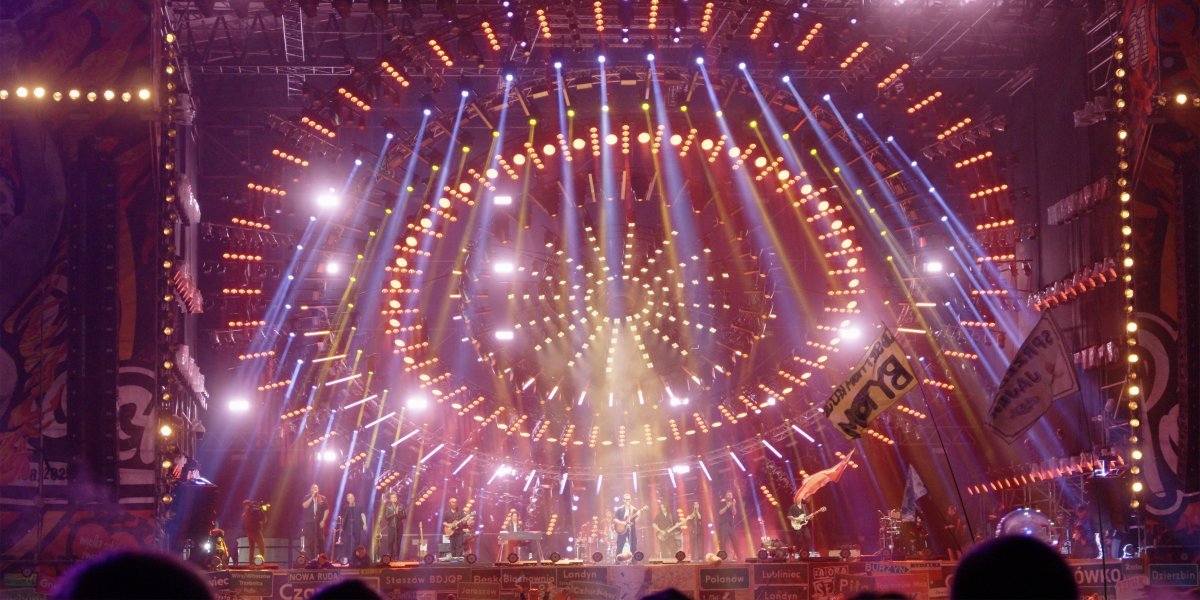
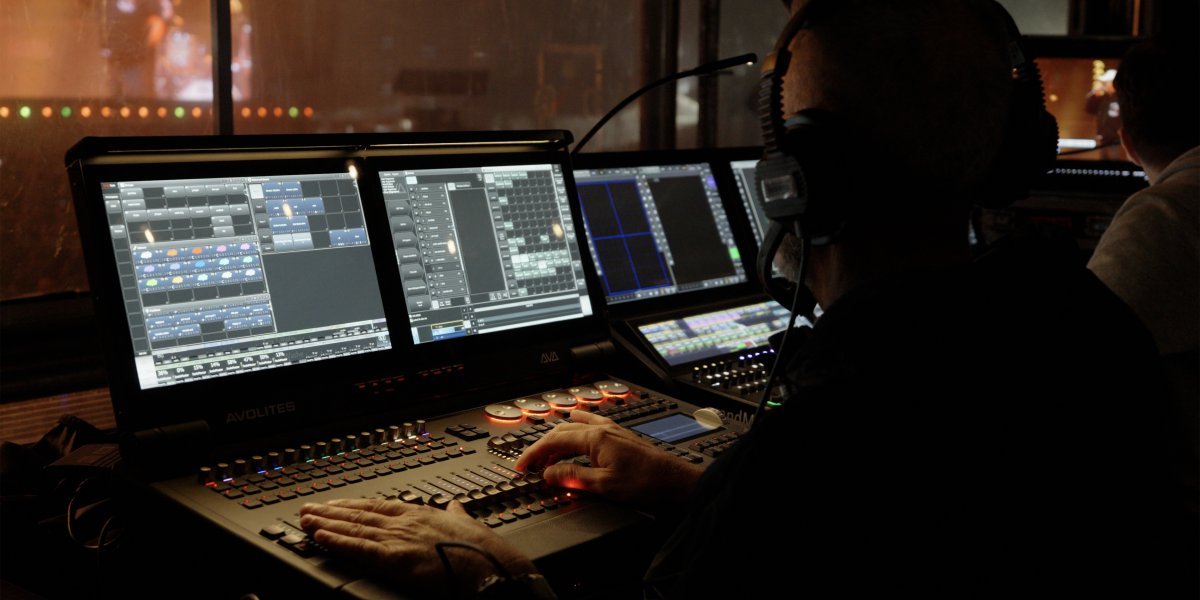
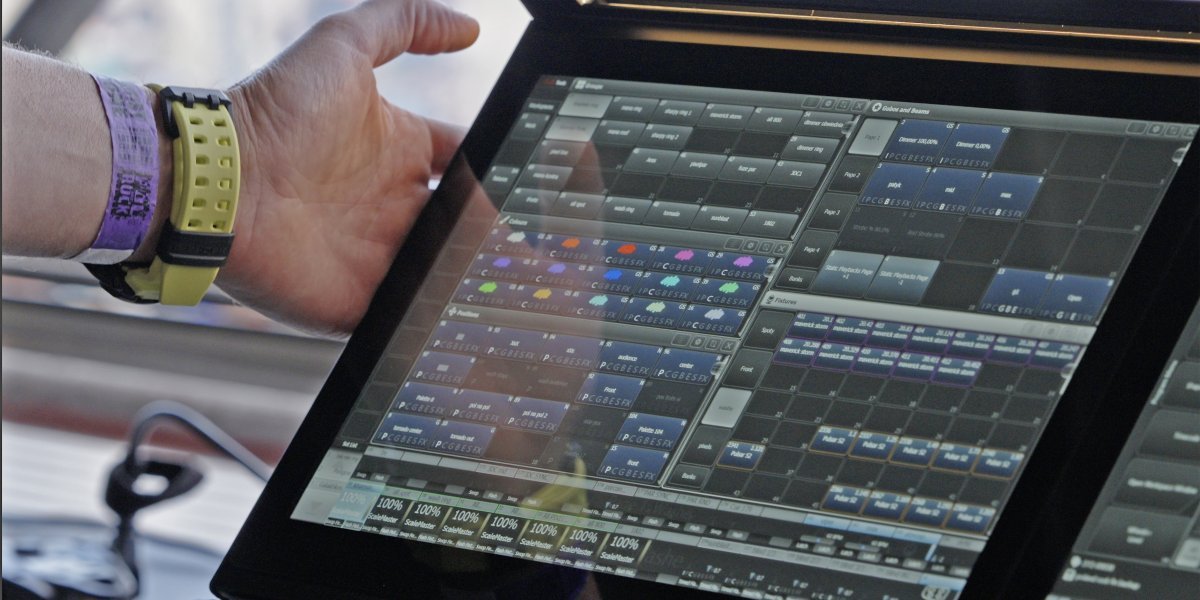
My name is Daniel Sipowicz, and I’d like to welcome you to Pol’and’Rock Festival. This is a very special moment for me — it’s my first time running a concert here using the Avolites D7 console, provided to me thanks to the generosity of Prolight.
For such a large-scale event, I arrived with an incredibly compact console. It’s small, light, and portable — I literally carried it under my arm up to the control position. Everything is stripped down to the essentials, but it still gives me plenty of room to work: 15 faders, lots of buttons, and everything I need to operate comfortably.
The D7 is an extremely convenient tool for touring. It’s small enough to take anywhere — by train, by plane — and the dedicated flight case is about the size of a standard checked baggage suitcase. This combination of mobility and professional work quality makes it a top choice for any lighting operator.
For many years, I worked on completely different desks — GrandMA, Vista, and even older CompuLite consoles. With the D7, I feel like I’ve found a blend of the best features from all of them in one compact device. What really surprised me was how fast and intuitive it is to work with. Normally, switching from one console to another requires a lot of time to learn the workflow. With the D7, it took me only about a month to feel completely confident.
I taught myself how to use it, and the interface is so intuitive that you just sit down, think about what you need — and do it.
The D7 comes with a built-in visualizer, plus full two-way integration with Capture. Spatching the show you see here next to me took about 30 seconds — I simply plugged my laptop into the console, and it automatically imported all elements: patch, IDs, and other key settings. Layouts can also be created directly in Capture, which saves even more time.
Preparing the console with a complete patch and layouts takes around three minutes. After that, you just import your palettes and other pre-prepared elements.
From the moment I first patched the rig to having the full show programmed, it took me only six hours. The day before the concert, I checked everything in the visualizer — it worked perfectly. On stage, the results were exactly as I had planned.
Pol’and’Rock Festival isn’t just about the amazing crowd and atmosphere — it’s also about working with world-class equipment. I’m confident everything will perform exactly as it should. My hope is that when people leave the show, they’ll say: “Wow, that was amazing again!”.